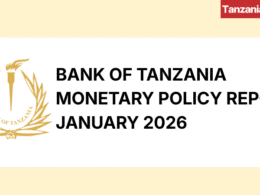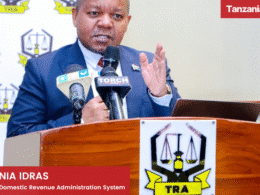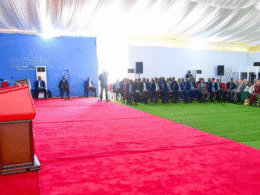On 12th November 2021, the IMF approved USD 372.4 million in emergency financial assistance to Tanzania under the Rapid Credit Facility (RCF), allowing the country to borrow from the Fund fully on concessional terms.
The amount corresponds to 66.7% of the quota under the RCF for Tanzania.
IMF’s RCF provides low-access, rapid, and concessional financial assistance to low-income countries (LICs) facing an urgent balance of payments need, without ex-post conditionality.
Financing under the RCF carries a zero interest rate, has a grace period of 5½ years, and a final maturity of 10 years.
It can provide support in a wide variety of circumstances, including shocks, natural disasters, and emergencies resulting from fragility.
The RCF also provides policy support and may help catalyze foreign aid.
Specifically, the fully concessional RCF emergency financing to Tanzania will facilitate the ongoing implementation of the authorities’ Covid-19 pandemic relief plans.
Following the Executive Board’s discussion, Mr. Bo Li, Deputy Managing Director and Chair, issued the following statement:
“The Covid-19 pandemic continues to take a toll on the Tanzanian people and economy. The authorities are implementing a comprehensive response—Tanzania Covid-19 Socioeconomic Response Plan (TCRP)—to mitigate the health and socioeconomic effects of the pandemic. The macroeconomic outlook depends on its successful implementation, but downside risks remain. Tanzania requires urgent financial assistance to implement the TCRP. The Fund’s emergency financing on fully concessional terms will help the country narrow its external financing gap, support the authorities’ implementation of the TCRP, and help catalyze donor support. Tanzania’s risk of external and public debt distress remains moderate. Temporarily loosening macroeconomic and financial policies has helped mitigate the pandemic’s impact and support economic recovery. To ensure the success of the TCRP, the authorities will prioritize the health response, including the vaccination campaign; enhance social safety nets; and strengthen coordination, governance, and transparency of pandemic-related spending.”
IMF Support to Tanzania
In June 2020, the IMF approved a grant under its Catastrophe Containment and Relief Trust (CCRT) to cover Tanzania’s debt service falling due to the IMF from 12th June to 13th October 2020, for the equivalent of USD 14.3 million.
Furthermore, in October 2020, the IMF approved a second six-month tranche of USD 11.6 million debt service relief to cover the debt service of Tanzania from October 14th, 2020 to April 13th, 2021.
And in September 2021, the IMF approved USD 567.25 million in emergency financial assistance to support Tanzania’s efforts in responding to the Covid-19 pandemic by addressing the urgent health, humanitarian, and economic costs.











